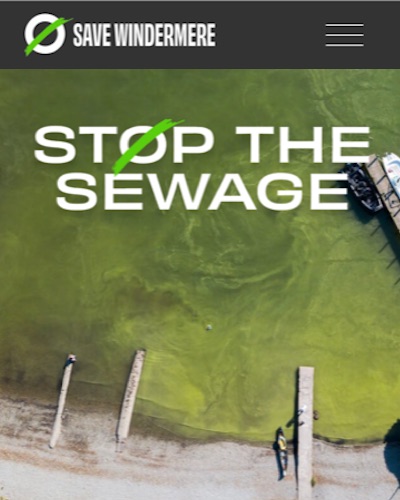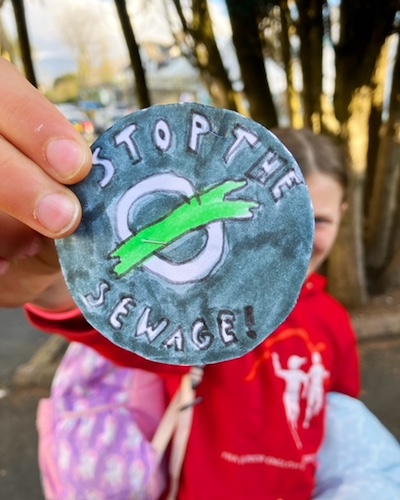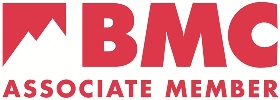 |
 |
Our Policies | Ethical Tourism | Community Awareness |
|

As a tour operator encouraging people
to travel to and in the worlds mountains, we have to take
responsibility for the environmental impacts of these actions. It's too easy to full a page like this with greenwash, and we've been guilty of this in the past. Now we can so vividly see the effects of climate change on the mountains, it's time to up our game, and focus on campaigns that we believe in, to call out the polluters and those who they have in their pockets, and to really improve our environmental efforts. It's beyond time to speak up, and put up. |
|
 |
 |
 |
 |
Key environmental campaign focus: Save Windermere |
|

As a company who is active in its support for campaigns that protect our mountain environment, here we focus on the campaign that we support most actively at present; the Save Windermere campaign, led by Matt Staniek. |
 |
 |
 |
Windermere is Englands largest lake, and it turns vivid green in algal blooms. The largest single contributor of phosphorus had been identified as United Utilities, who dump treated and raw sewage into it. They did this for a staggering 246 days in 2022 from storm overflows in the catchment.


You'll find our shop in Windermere has windows covered in Save Windermere stickers, and never has a local compaign mattered so much to both locals and visitors alike. The spills of sewage make it unsafe to swim in the lake. |
|
 |
| Windermere is dying right in front of our faces. The lake is not just iconic to the National Park, and important to the £750 million a year tourist industry, but it is far more than that - Windermere is in a World Heritage Site and National Park. It is supposed to be protected for the environment and for future generations, but is it being killed off to line the pockets of United Utilities and its shareholders. Join the campaign here; https://www.savewindermere.com |
 |
The campaign to Save Windermere asks one question; are you for or against sewage being pumped into the lake? United Utilities is fighting hard to ignore the issue, to protect its profits and dividend payouts for its shareholders.


In the 5 year period 2015-2020, United Utilities invested £40 million on infrastructure in the Windermere catchment. In the same period, its payout to investors was £1.6 billion! It's all about the money. All business is about money, but ethics must prevail. Help here; https://www.savewindermere.com |
 |
 |
|
 |
 |
 |
Other environmental campaigns which we actively support |
|

Our base is Windermere in the Lake District, and many of the campaigns and charities we support are local, and help with the environmental challenges within the National Park, the visitor pressures and mountain safety. Below are some more national and international initiatives, such as carbon offsetting for air travel. |
 |
 |
|
Zero
Carbon Footprint Campaign
Icicle is a founder member
of this campaign, whose aim is to promote activities
which have the highest of environmental standards.
By following these standards on some specific
courses, such as some trekking and snowshoe courses,
you can opt to only use public rather than private
transportation. |
 |
British
Mountaineering Council BMC
The BMC is the largest campaign
organisation for British mountain users. They campaign
for access issues, for the responsible use of mountains,
and fund raise for path repairs such as the Mend
Our Mountains campaign. The BMC also is a lobby
group, who influences government in mountain issues. |
|
Refill
FREE Drinking Water Campaign
Download the free Refill app,
and search for local places where you can top up
your water bottle for FREE. This campaign aims to
reduce plastic waste, and our Windermere office
and shop is a featured top up location. Rather than
buy spring water in plastic bottles, download the
app, and get Refilling. |
|
Carbon
Offsetting Campaign
Icicle encourages all clients
to consider offsetting their carbon emissions
of travel to the mountains through a campaign such
as Climate Care. Click on their logo on the left
for more details. For example, the cost of offsetting
a return flight from London Heathrow to Geneva, for an Alpine trip,
is only £1.41. |
|
|
 |
 |
 |
 |
Icicle's environmental
policy in the Alps |
|
 |
 |
Every
client on our Alpine courses has an introduction
briefing when they arrive, and a significant element
of this focuses on the things
that each client can do to help the environment.
As with most things, simplicity is the best option,
and most of our actions are extremely low tech,
but the cumulative effect is big. |
 |
We
recycle all paper and glass that we use, and ask
all clients to sort their rubbish to assist this,
by providing recycling containers in all client
accommodation. Our accommodation is equipped with
energy saving devices (e.g. bulbs and energy A rated
appliances) wherever possible. During renovations
of our accommodation, we recycle all waste in local
recycling centres, where roughly 90% of all material
is recycled. |
 |
Clients
are asked to conserve electricity when they leave
their accommodation, by turning off all lights,
and to close windows and doors to conserve heat.
It is not exactly rocket science, but it all helps.
All of the clients accommodation have environmental
posters advertising our policies and how they can
help. |
 |
When
in the mountains all clients are briefed on litter
disposal, and all rubbish is carried off to be disposed
of in the valley. Many huts
are now installing bio-toilets to reduce the impact
on the environment, and we ask all our groups to
take all litter with them to reduce the amount of
rubbish that the helicopters
delivering supplies to the huts have to carry down,
or the rubbish that some guardians choose to burn
near the hut. |
 |
In
terms of transport pollution, wherever possible
we use larger group transport (local navette buses,
minibuses etc) rather than several individual cars,
and all our vehicles run on unleaded and are fitted
with catalytic convertors. All these policies combined
are a step in the right direction, but if you have
any ideas about how we could improve our policies
in the Alps, please let us know... |
|
 |
 |
|
 |
 |
Environmental
policy on glocal expeditions |
|
 |
 |
As
with our policies in the Alps, we pay attention
to every environmental detail on our expeditions.
Wherever possible we use other UIAA Environmental
Label or Leave No Trace holders to provide local
logistics services such as base camp services and
porter provisions. |
 |
Our
expeditions are planned in great detail to ensure
that we are sensitive to the local economy, and
we ensure that all local staff that are hired (drivers,
cooks, porters) are suitably trained, clothed, paid
and looked after. |
 |
On
expeditions we need to be a lot more aware of litter
disposal and sanitation, and we keep the same standards
as in the Alps. Often this necessitates getting
extra porters / mules / yaks to carry out litter
at the end of an expedition so that we ensure that
we leave the mountain in the same state as we found
it. |
 |
Expedition
dossiers are sent to all clients, that clearly state
the environmental policies we have for each of our
trips, and the particular requirements of the trip
they are booked on. These dossiers and the environmental
requirements are meticulously researched, with advice
from agents from the country to be visited. |
|
|
 |
 |
Environmental
campaign focus - Mont Blanc road tunnel |
|
 |
| The
tunnel runs under Mont Blanc and links Chamonix in France
& Courmayeur in Italy. This 12km toll road starts
at 1300m above sea level, 300m above the valley floor.
It was reopened after a fatal fire started by a burning
lorry in 1999. The road tunnel is important to the local
ecomony for tourist traffic, but is also used for lorries
for road haulage. We protest strongly against the use
of the tunnel by lorries due to the amount of pollution
that they cause in the valley. There
are more environmentally suitable alternatives, such as
the Frejus tunnel, or rail freight. We support the regular
peaceful protests against the lorries, as shown by these
photos below. |
|
|
|
| It
would be easy to argue that we are focusing on the micro
scale here, rather than considering the macro or global
scale. Put this in context, as we are a relatively small
company doing our bit. Mont Blanc is a globally recognised
peak, and it is in our back yard. Surely our efforts to
preserve the environment here have
global impact, and may encourage other regions to consider
their mountain environment with greater respect and sensitivity.
We live in an age where many people prefer to use their
energies for cynicism and to put others efforts down.
Perhaps these energies might be better focused on helping
everyone. |
|
 |
| Top tips - how you can help |
 |
 |
"Don't
carry pre-bottled water to drink when out in the
mountains and fells. We suggest you use fresh
water from the tap, and re-use water bottles for
this" |
"We
educate all our clients to carry out all rubbish
they generate when in the mountains, and to pick
up any litter that they find, to leave no trace
at all" |
"When
selecting a course, you will see that we rate
some for having a low environmental impact itinerary,
such as snowshoeing, ski touring, trekking & running" |
"Always
use IFMGA Mountain Guides and UIMLA Leaders to
guide you in the Alps, as they are well trained
to teach you about the local environment. In the UK mountains we use AMI and ML instructors as well, who are all trained about the upland environment in the UK National Parks and mountains" |
|
 |
| Environmental
policies |
 |
 |
 As with all of our operations, our environmental
policy is not static but in a state of constant
flux to ensure
that we set the best standards, educate others about
them, then try to improve again. As with all of our operations, our environmental
policy is not static but in a state of constant
flux to ensure
that we set the best standards, educate others about
them, then try to improve again. |
 We have
an active Responsible Business (RB) programme in
place for all operations, covering areas such as
local community involvement, environmental improvements,
employee well-being, and health and safety. We have
an active Responsible Business (RB) programme in
place for all operations, covering areas such as
local community involvement, environmental improvements,
employee well-being, and health and safety. |
 For us Responsible Business is local
business. We actively employ mountain guides and
leaders who live locally, and encourage clients
to patronise locally operated restaurants, shops
and bars. For us Responsible Business is local
business. We actively employ mountain guides and
leaders who live locally, and encourage clients
to patronise locally operated restaurants, shops
and bars. |
 With every environmental policy, it takes the two
sides to work together to produce any tangible results.
One thing that should be mentioned more by others
is that keeping these environmental standards is
not a pain or a drag, but a rewarding and educational
process that both a company and its clients can
share. With every environmental policy, it takes the two
sides to work together to produce any tangible results.
One thing that should be mentioned more by others
is that keeping these environmental standards is
not a pain or a drag, but a rewarding and educational
process that both a company and its clients can
share. |
 When you book on a trip, do not forget that most
of the logistics and planning work is done in our
UK office. Our environmental policies are just as
important here, and we operate from a mainly paperless
office. When you book on a trip, do not forget that most
of the logistics and planning work is done in our
UK office. Our environmental policies are just as
important here, and we operate from a mainly paperless
office. |
 All bookings are made online, so a paper copy never
exists. We try to provide an enormous proportion
of the information that anyone booking needs, on
our website rather than in printed form. Paperless
e-bookings and constantly developing the website
rather than printed media are key to our policies. All bookings are made online, so a paper copy never
exists. We try to provide an enormous proportion
of the information that anyone booking needs, on
our website rather than in printed form. Paperless
e-bookings and constantly developing the website
rather than printed media are key to our policies. |
|
 |
| Climate
change
in the
future |
 |
 |
| Ozone
holes grow, sea levels rise, sections of the Antarctic
ice shelves break off, greenhouse gases build up, and
glaciers retreat. It is not a rosy future at the moment,
and the key question is how much of the this is attributable
to humans?
Yes, there are natural cycles of warmer and cooler periods
(you will have seen images of the Frost Fairs in London
on the Thames in the 18thC, and may have read that global
temperatures were far higher than present in Roman times),
but most scientists only agree that humans are accelerating
the rate of natural temperature increase, but they are
not sure how
much. With the main governments seemingly powerless (for
political reasons) to endorse significant measures to
decrease the human
impact on climate change, the power and responsibility
must now lie with companies who have
the ability to implement change. This page has given you
an idea of how
we are trying to help, but is it working and what are
the effects in the Alps? The
press has recently given a lot of focus recently to how
Alpine glaciers are retreating and some routes have become
unsafe. For the most part these stories are factually
correct, but the implication of most of them is that this
is a sudden occurance and realisation. This could not
be further from the truth. Routes come in and go out of
condition over the decades, and for the number of routes
that are taken out of condition by climate change, many
new ones become available. The doomsday secnarios are
global, not just restricted to the mountains. Our hope
is that the responsible use and enjoyment of mountains can
become an impetus and symbol for future actions for our
whole planet. We invite you to participate in our efforts,
and if you have any ideas of how we could assist the environment
further, please e-mail them to us. |
 |
| Suggested
reading and kit |
 |
 |
|
 |
| To
view the full course equipment list,
with examples of kit, please click
here. |
 |
| Any
further questions? |
 |
 |
A
key part of choosing a company is being able to come and
talk about your plans with an experienced course advisor
face to face. In an increasingly virtual world, we know
our clients value speaking to real people, getting open
and honest advice. The vast majority of our clients are
British, and our office and outdoor store is based in
Windermere in the English Lake District.

 

Get
in contact to arrange a meeting, and come in for a coffee
to discuss your course in person with a trip
advisor. |
|

